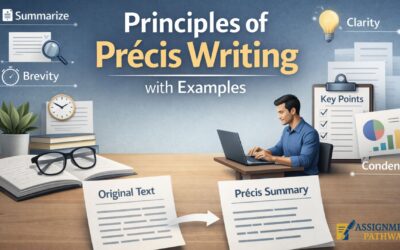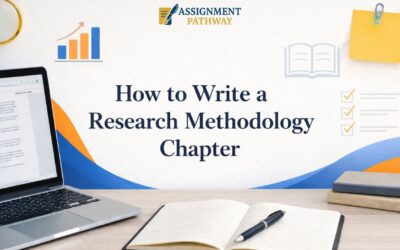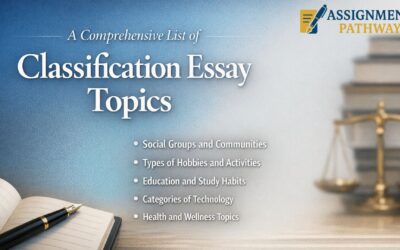Navigating AI Use in Coursework with Academic Integrity

In recent years, artificial intelligence (AI) tools like ChatGPT, Bard, and others have entered the mainstream, changing how students approach assignments, essays, research, and study help. But along with the possibilities comes a serious question: How can students use AI wisely, without falling into academic misconduct? In this blog I’ll Walk you through practical advice for balancing AI, integrity, and success. For students in London or anywhere else, Assignment help London is a phrase many search when they need support. I’ll also show how Assignment Pathway can be part of your toolkit (responsibly).
Why AI in coursework is tricky?
AI tools are powerful. They can help you brainstorm ideas, rephrase sentences, suggest structure, check grammar, or summarize complex texts. They can also produce content that sounds polished yet is factually wrong, derivative, or too generic. If you submit AI-generated text as your own original work, you risk violating academic integrity policies.
Many universities now treat AI-generated content the same as any external source: you must disclose and cite it, or risk being accused of plagiarism. Moreover, AI doesn’t always cite sources, it might “hallucinate” facts or mix up information. That means you must verify every claim it gives you. So, AI can help, but you can’t let it carry the load entirely.
What does academic integrity mean?
Academic integrity means doing your own work, giving credit to sources, and being honest about how you got your ideas. It’s about respecting the learning process. Using AI improperly e.g. submitting a generated essay without your own input is analogous to copying from someone else without attribution.
Universities are updating their integrity codes to include AI. Some even ban AI use in assignments unless explicitly allowed. So, before you even open ChatGPT, check your course syllabus or ask your instructor: Is AI allowed? If yes, how is it allowed? If no, you must avoid it for that assignment.
Smart ways to use AI (without getting in trouble)
Here are student-friendly strategies to use AI as a helper not a cheat:
- Use AI for brainstorming and outlines– Let AI suggest topic ideas, structure, or possible headings. But don’t copy the whole thing convert suggestions into your own version.
- Ask AI for phrasing help or rewording– Suppose a sentence sounds awkward; ask AI to paraphrase and then tweak further. Always check for clarity and accuracy.
- Use AI to check grammar, style, or clarity– AI tools can spot awkward sentences, improve coherence, or polish your writing. This is safer use.
- Use AI for feedback reflection– Ask it “How can I strengthen this argument?” or “What counterpoints am I missing?” The final decisions should come from you.
- Always cite AI when you use its output in a meaningful way– If you directly use a phrase or major idea from AI, acknowledge it. Some universities require you to include a short reflection explaining how AI helped.
- Don’t rely on AI for the whole assignment– Your original thinking, critical analysis, and own voice must dominate. AI should assist, not replace you.
- Double-check everything– Treat AI’s output as a draft or suggestion. Always verify facts, citations, coherence, and accuracy yourself.
- Ask instructor’s permission if unsure– If the rules are unclear, get explicit written permission to use AI for that assignment.
If you do follow these practices, you head off many integrity issues. You still get benefit from AI, but responsibly.
What about students who search for “Assignment help London”?
Many students in London or around the world type “Assignment help London” when they’re stuck. That often leads them to services offering writing, editing, or tutoring support. It’s natural to look for help when you have a tough topic, time pressure, or writer’s block.
Here’s the key: choosing help is fine if that help doesn’t cross into doing your work for you in ways that break academic integrity. A good “assignment help London” service should:
- Provide guidance, feedback, and tutoring, not ghost-writing.
- Offer sample outlines, model answers, or tips (not full submissions to hand in).
- Encourage you to understand and build your own work.
- Be transparent about how their service should be used (for learning, not cheating).
If you find an “assignment help London” service that does those things well, it can be a positive support but always remain responsible for your own ideas, writing, and final submission. That’s where Assignment Pathway can come in. Assignment Pathway is a website that provides model essays, academic writing services, and resource support.
You should use Assignment Pathway only as a reference tool not to copy its content verbatim. You can see how the structure works, how arguments are presented, or how sources are integrated. Then write your own version influenced by those examples not replicating them.
How to integrate AI + assignment help + integrity?
Here’s a possible workflow that balances AI, assignment help (like “assignment help London”) and academic honesty:
- Start with your prompt or question– Read the assignment carefully. Highlight key requirements, word limits, and assessment criteria.
- Brainstorm and outline– Use AI or assignment help services to list ideas or possible structure. But convert those into your own outline.
- Research & read sources– Get real articles, books, papers. Read, note, summarize in your own words. Don’t let AI be your only source.
- Draft your work– Write a first draft using your outline. Then you may consult AI or assignment help London for phrasing suggestions, transitions, or clarity.
- Reflect and revise– Use AI feedback or assignment help services to point out weak arguments or missing links. But always decide how to revise.
- Cite everything properly– If a sentence came from a source, cite it. If a phrase or idea came from AI, clearly acknowledge it. If you consulted Assignment Pathway models, do not copy but you may note how you adapted structure or approach.
- Write your own reflection– Some instructors now ask students to add a short reflection: “What role did AI or external help play, and how did you shape the final work?” That shows transparency.
- Submit with honesty– Always follow your institution’s rules. If the syllabus forbids AI use or third-party services, don’t risk it.
Common pitfalls to avoid
- Blindly copying AI output: That’s plagiarism.
- Submitting someone else’s entire work: That’s contract cheating.
- Ignoring university rules: Always follow the policies your course sets.
- Overreliance on assignment help London: Rely too much, and you lose your own skills.
- Failing to reflect on AI use: If your instructor asks, not doing so looks dishonest.
Final thoughts: Own your learning
Using AI and external support is not inherently bad. What matters is how you use them. If AI becomes your crutch, you lose the chance to grow. If AI helps you polish ideas, spot errors, or explore new angles while your own work remains central then you can stay on the right side of academic integrity.
So yes, you may search “assignment help London” when you want support and you may even use Assignment Pathway for models or writing guidance but always:
- Use AI thoughtfully
- Use help services for tutoring and reference
- Do your own analysis, writing, and revision
- Cite and reflect on any external influence
If you stay on that path, your coursework will remain honest, original, and truly yours and in the long run, that’s how you’ll grow as a student not just by submitting work, but by learning through it.






